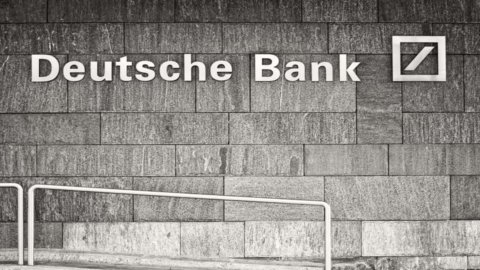In the future the growth of China it will be slower, but also safer and more sustainable. The supports it International Monetary Fund, specifying however that this change will only be possible if Beijing continues to open its economy to the market. And precisely along this path, the triple devaluation of the yuan in mid-August represents a fundamental step.
In its annual report on the country's economy, the IMF writes that Chinese GDP should grow this year by 6,8%, against the +7,4% recorded in 2014. According to the Fund, this slowdown, moreover in line with the growth target set by the government of around 7%, "reflects the progress made in addressing the vulnerable elements of the economic system, especially as regards the need to reduce real estate investments" .
On the equity front, on the other hand, the Washington institution believes that the recent correction - however abrupt - it will not affect the settlement on a slower but more balanced growth path: "At this point - comments Markus Rodlauer, head of the IMF mission in China - the real challenge is to take further steps towards an economy more open to the market".
A metamorphosis which, according to the Fund, requires "courageous structural reforms", starting with the currency. “We are convinced – continues Rodlauer – that China can and must ensure that the exchange rate of the yuan becomes truly floating within two to three years“. In this regard, the IMF reiterates that the new mechanism announced by the Chinese Central Bank to determine the central parity of the currency "is a move to be welcomed, since will allow the market to play a greater role in the definition of the exchange rate".
To better manage the slowdown in GDP and prevent it from becoming dangerous, the Fund advises Beijing to aim for growth of 6,5-7% this year and 6-6,5% for 2016. Monetary policyfurthermore, it should be characterized by the utmost caution, since excessive easing could risk exacerbating risks in the credit and investment sectors.
On the other hand, according to Washington, tax policy it should remain accommodative for now and gradually strengthen from next year, thus putting public finances on a sustainable trajectory. Furthermore, to make the economy more open to the market, the IMF suggests intervening in two key sectors: finance and public companies.
The Fund acknowledges that China has already implemented some reforms to liberalize the financial systembut stresses the need to ensure that banks set rates on deposits and loans according to market conditions.
As for the state groups, in addition to ensuring that they play by the same rules as private companies - so that they guarantee more wealth and jobs in the future - the IMF also recommends increasing the payment of dividends and strengthening governance.
“China is now the largest economy in the world in terms of purchasing power – concludes Rodlauer – and this bears witness to the success of the reforms and development policies put in place so far. The faster we continue along this path, the sooner the new advantages will materialize".
Attachments: Source: IMF





